Reverse the Future: NSYSU showcases its climate actions in Taiwan Climate Action Exposition 2021
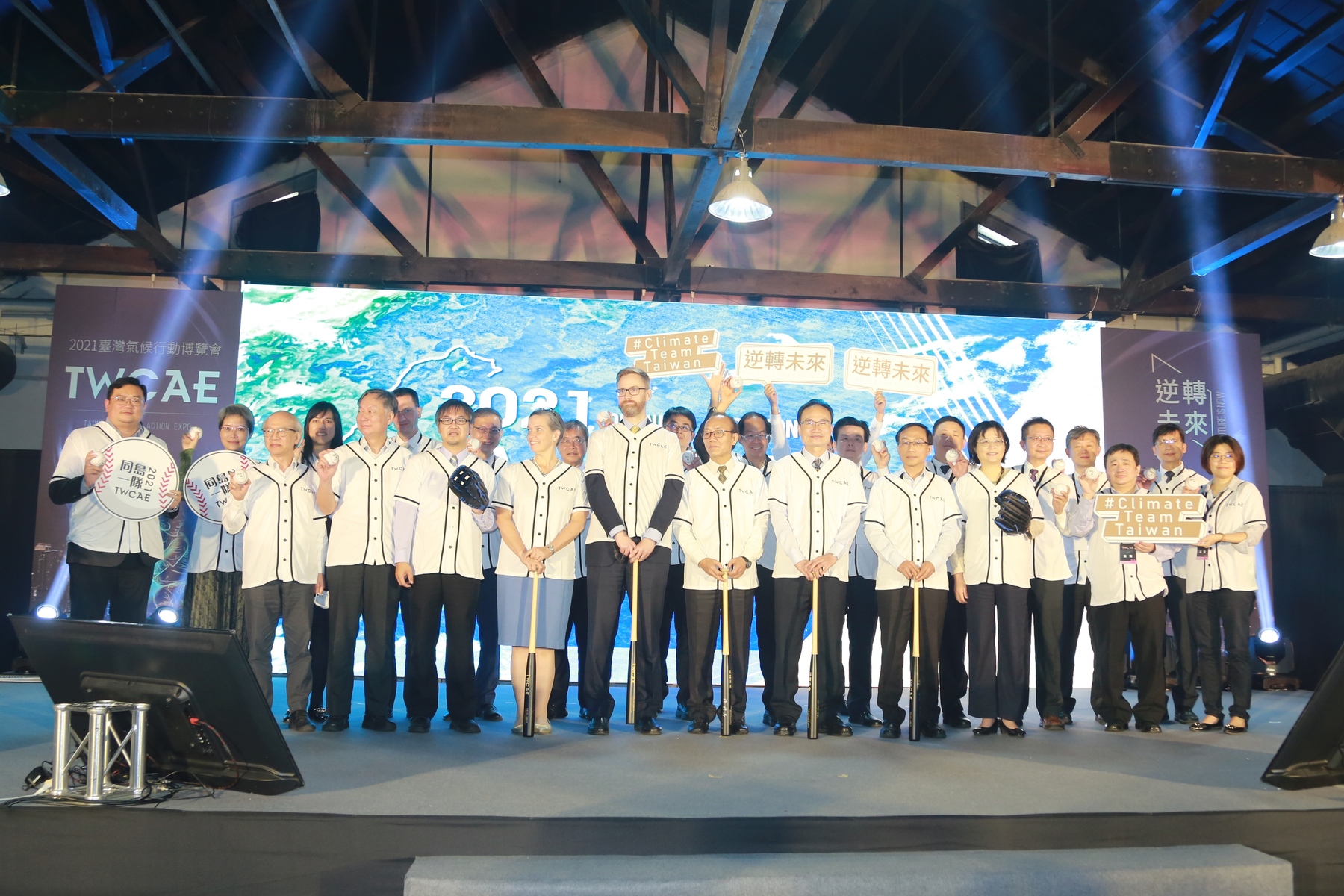
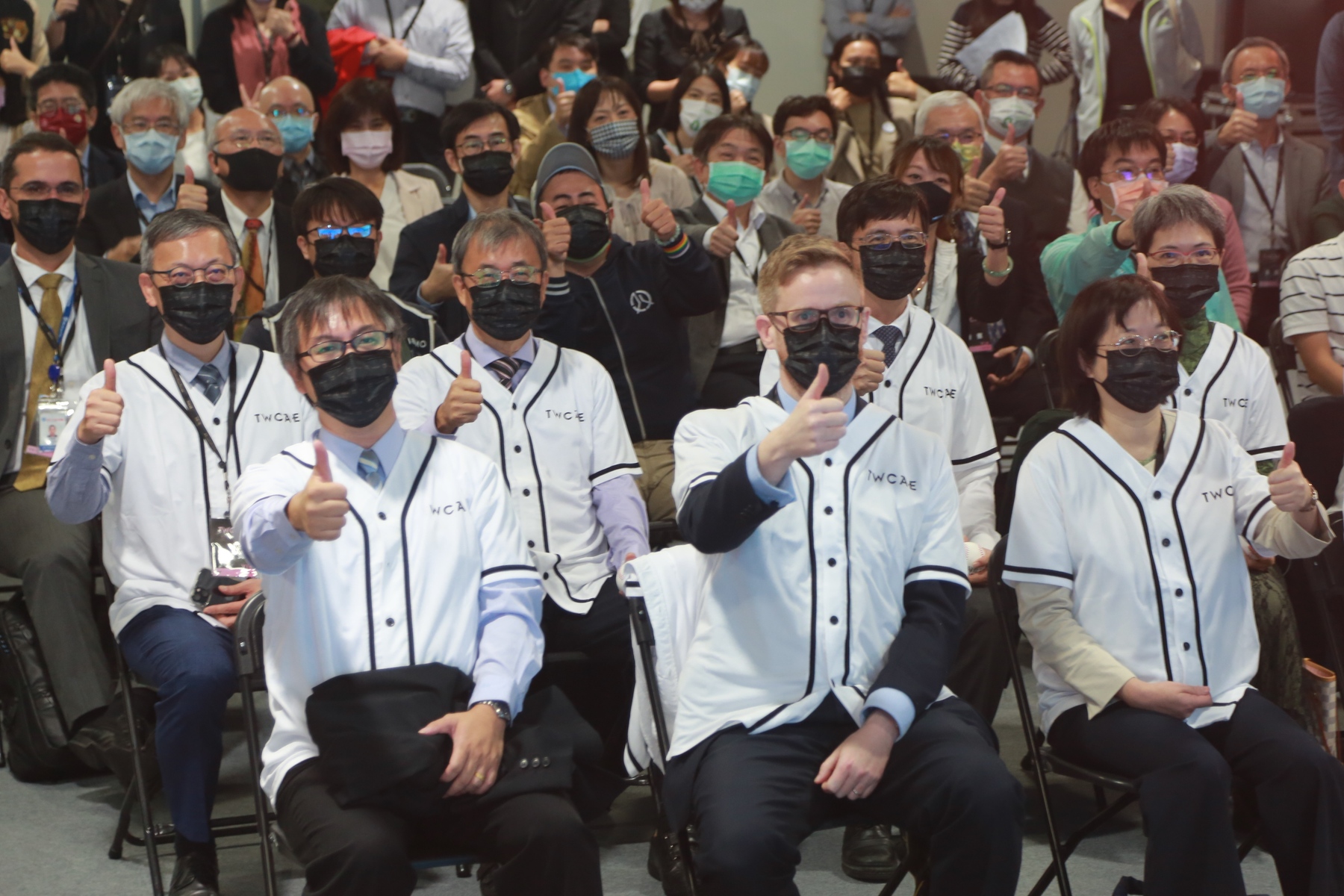
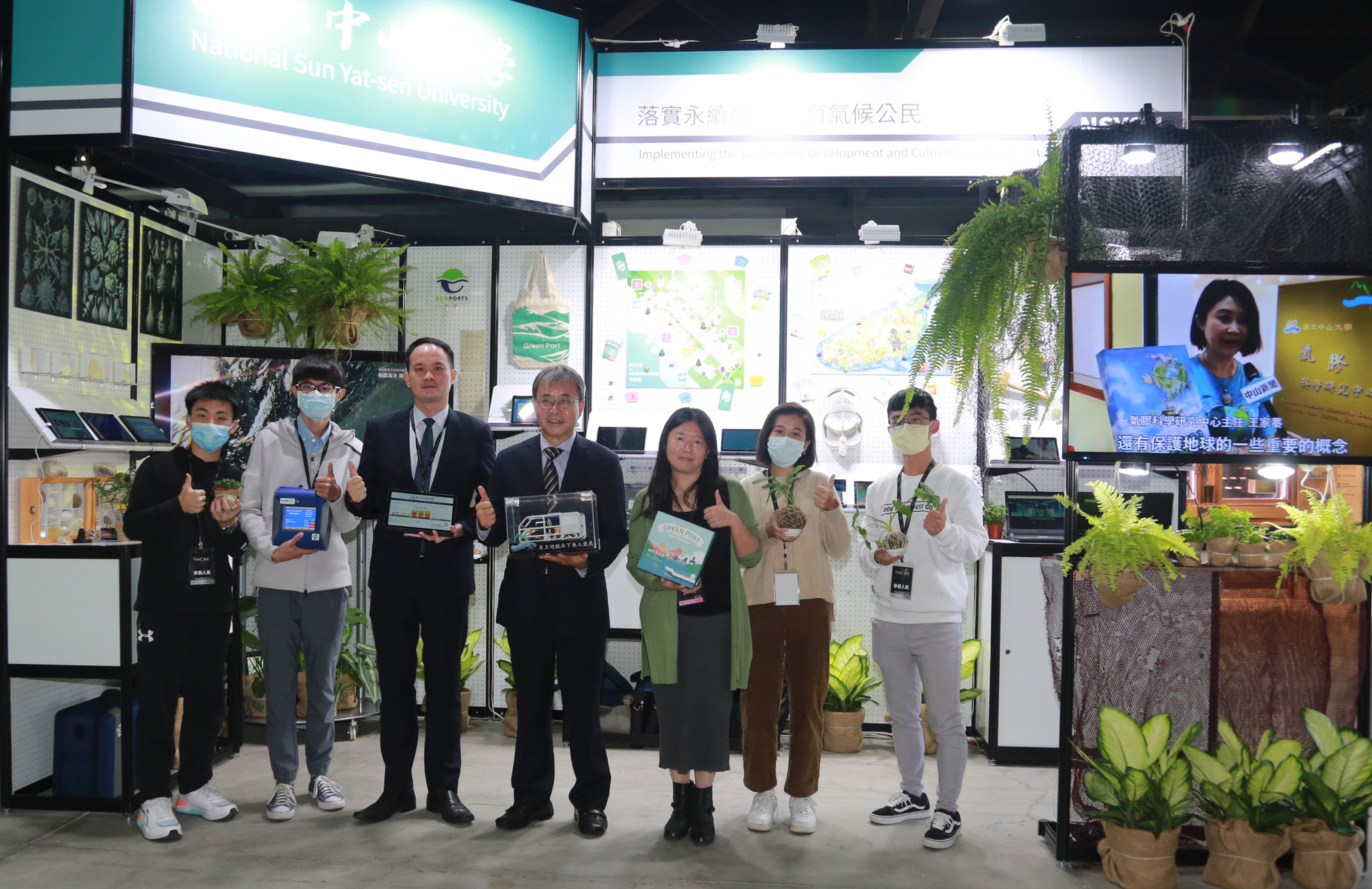
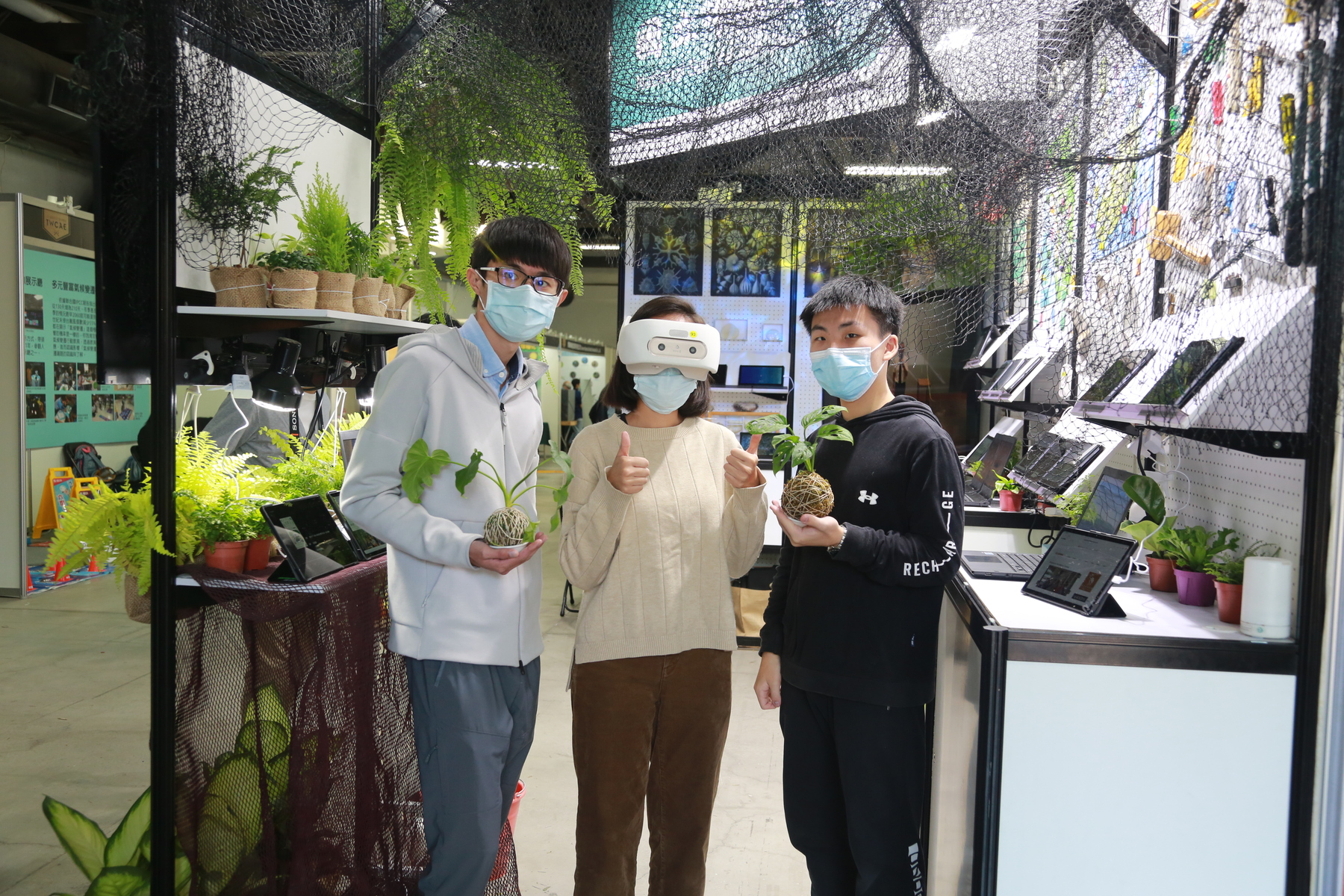
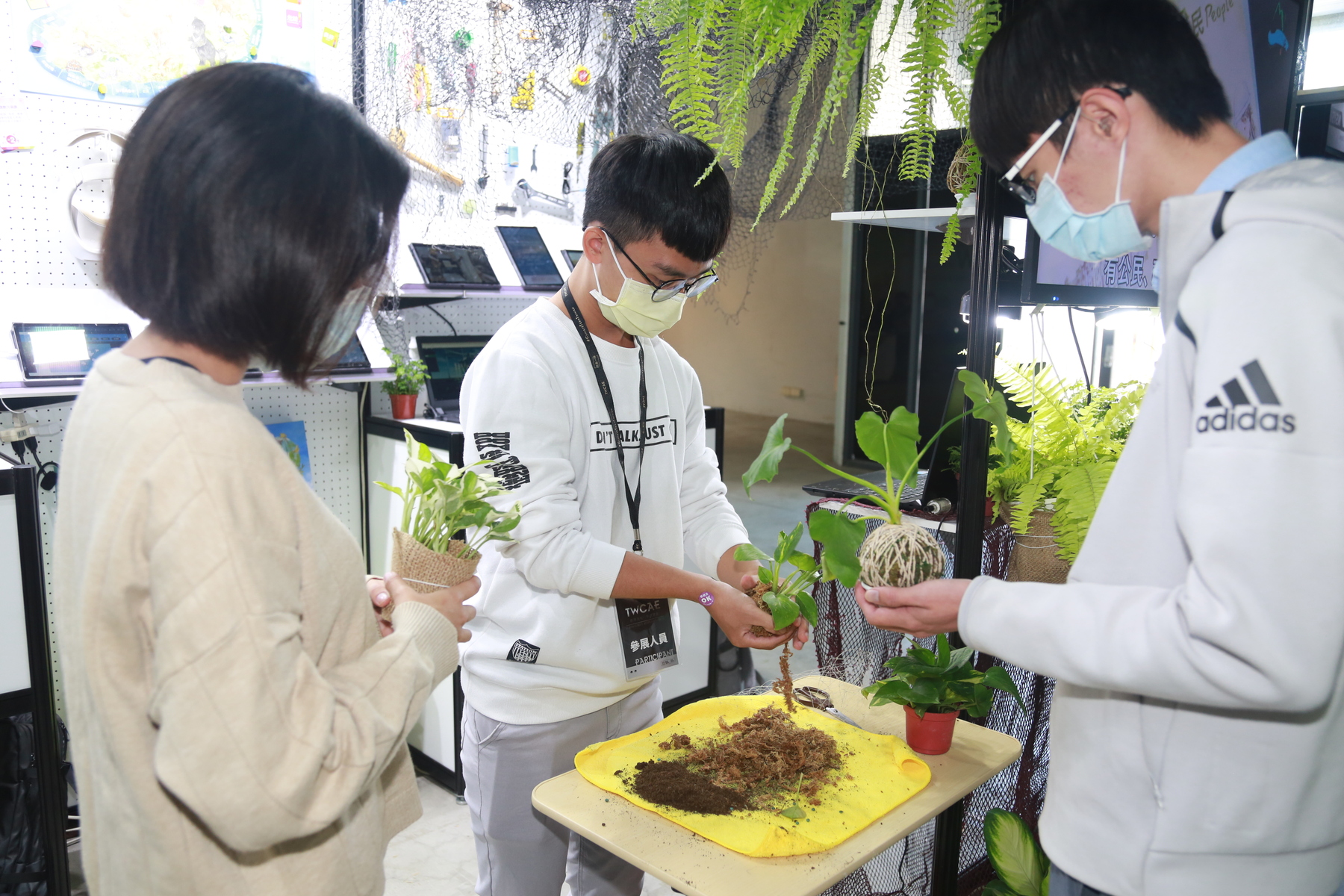
2022-01-11
As climate change is an issue the whole world is focusing on, the three-day Taiwan Climate Action Exposition 2021 was organized in Pier-2 Art Center in Kaohsiung. National Sun Yat-sen University participated in the event with the theme of “Realizing sustainable development, cultivating climate citizens”, displaying its research on Dongsha Atoll, Liuqiu Island, foraminifera, underwater vehicles, biomimetic technology, PM2.5, monitoring and assessment of greenhouse gases, education on climate change adaptation, and actions such as recycling of abandoned fishing nets, moss pot handicraft, repairing and recycling, energy saving and carbon reduction on campus, traceless living, and various board games that let the participants reflect on their responsibilities as global citizens.
Taiwan Climate Action Exposition 2021 is the first event in Taiwan with the slogan of "Reverse the Future" to be held in response to the Paris Agreement and UN Sustainable Development Goals, emphasizing the power of the public and private sectors to take joint actions to reverse the possible impacts of climate change in the future.
According to NSYSU, the University switched disposable display panels for their multiple-use versions for its exposition. Also, it encouraged a pro-environmental attitude among visitors by asking them to bring their own cups and giving a positive example of “climate citizens”. According to a report by Greenpeace, approximately 64 tons of fishing gear end up in the oceans every year, either lost or intentionally discarded; 6% of this amount are fishing nets, 9% are fishing traps, and 29% are trawls. They become ghost fishing nets that pollute the ocean and harm marine life. Associate Professor Hua-Mei Chiu of NSYSU Department of Sociology, guided the abandoned fishing nets investigation team to visit fishing ports, fishermen and fishing authorities, central and local government departments, environmental NGOs, assist corporate NPOs, recyclers and manufacturers to understand the current situation and challenges of recycling waste fishing nets and explore the possibility of recycling waste fishing nets in Taiwan from the perspective of stakeholders. The group explores the possibility of recycling discarded fishing gear in Taiwan.
NSYSU’s investigation team NSYSU cooperated with the green roof volunteer team of the Department of Marine Engineering to create more possibilities for circular economy and for greening the environment. The green roof volunteer team demonstrated the use of two kinds of moss to replace flower pots, changing the original form of pots and using a cotton thread and hemp rope to fix the natural pot medium for a variety of different functions of indoor plants, creating a plant artwork for indoor spaces that can also purify the air and heal your soul in the busy life. The team members reflected on the model of zero-waste circular economy in which one’s waste can become someone else’s product, from the perspective of the environment, economy, and innovation.
NSYSU President Ying-Yao Cheng pointed out that the campus should be a place for environmental education and practice. In recent years, NSYSU has been working on achieving a green and sustainable campus and has installed more environmentally-friendly electricity and water equipment, as well as planted more vegetation on campus, fulfilling and continuously strengthening the university's social responsibility. At the same time, the University is committed to promoting education on climate change among the students and faculty, improving high school students’ basic understanding of the causes and effects of climate change, as well as innovation in research and technological R&D in the field of climate change. The three-day Exposition aims at putting on display the climate challenges and actions in Kaohsiung.
Associate Dean Shiau-Yun Lu of NSYSU Si Wan College said that this time, several concrete actions concerning climate change at NSYSU were showcased in the presentation, including those by administrative units: Office of Research and Development, Office of General Affairs, and the co-learning group of the Office of Academic Affairs and academic units: College of Marine Sciences, Si Wan College, Department of Sociology, Institute of Environmental Engineering, Institute of Education, Department of Mechanical and Electro-Mechanical Engineering, Aerosol Science Research Center, Social Engagement Center, Underwater Vehicle R&D Center, electromechanical research laboratory, USR Project: The City as a Commuseum – Socially Embedded Community Engagement, and Dongsha Atoll Research Station of the Ministry of Science and Technology. The actions focused on three questions: What does data on environmental change tell us? How to interpret these data? How to be a climate citizen?
As climate change is an issue the whole world is focusing on, the three-day Taiwan Climate Action Exposition 2021 was organized in Pier-2 Art Center in Kaohsiung. National Sun Yat-sen University participated in the event with the theme of “Realizing sustainable development, cultivating climate citizens”, displaying its research on Dongsha Atoll, Liuqiu Island, foraminifera, underwater vehicles, biomimetic technology, PM2.5, monitoring and assessment of greenhouse gases, education on climate change adaptation, and actions such as recycling of abandoned fishing nets, moss pot handicraft, repairing and recycling, energy saving and carbon reduction on campus, traceless living, and various board games that let the participants reflect on their responsibilities as global citizens.
Taiwan Climate Action Exposition 2021 is the first event in Taiwan with the slogan of "Reverse the Future" to be held in response to the Paris Agreement and UN Sustainable Development Goals, emphasizing the power of the public and private sectors to take joint actions to reverse the possible impacts of climate change in the future.
According to NSYSU, the University switched disposable display panels for their multiple-use versions for its exposition. Also, it encouraged a pro-environmental attitude among visitors by asking them to bring their own cups and giving a positive example of “climate citizens”. According to a report by Greenpeace, approximately 64 tons of fishing gear end up in the oceans every year, either lost or intentionally discarded; 6% of this amount are fishing nets, 9% are fishing traps, and 29% are trawls. They become ghost fishing nets that pollute the ocean and harm marine life. Associate Professor Hua-Mei Chiu of NSYSU Department of Sociology, guided the abandoned fishing nets investigation team to visit fishing ports, fishermen and fishing authorities, central and local government departments, environmental NGOs, assist corporate NPOs, recyclers and manufacturers to understand the current situation and challenges of recycling waste fishing nets and explore the possibility of recycling waste fishing nets in Taiwan from the perspective of stakeholders. The group explores the possibility of recycling discarded fishing gear in Taiwan.
NSYSU’s investigation team NSYSU cooperated with the green roof volunteer team of the Department of Marine Engineering to create more possibilities for circular economy and for greening the environment. The green roof volunteer team demonstrated the use of two kinds of moss to replace flower pots, changing the original form of pots and using a cotton thread and hemp rope to fix the natural pot medium for a variety of different functions of indoor plants, creating a plant artwork for indoor spaces that can also purify the air and heal your soul in the busy life. The team members reflected on the model of zero-waste circular economy in which one’s waste can become someone else’s product, from the perspective of the environment, economy, and innovation.
NSYSU President Ying-Yao Cheng pointed out that the campus should be a place for environmental education and practice. In recent years, NSYSU has been working on achieving a green and sustainable campus and has installed more environmentally-friendly electricity and water equipment, as well as planted more vegetation on campus, fulfilling and continuously strengthening the university's social responsibility. At the same time, the University is committed to promoting education on climate change among the students and faculty, improving high school students’ basic understanding of the causes and effects of climate change, as well as innovation in research and technological R&D in the field of climate change. The three-day Exposition aims at putting on display the climate challenges and actions in Kaohsiung.
Associate Dean Shiau-Yun Lu of NSYSU Si Wan College said that this time, several concrete actions concerning climate change at NSYSU were showcased in the presentation, including those by administrative units: Office of Research and Development, Office of General Affairs, and the co-learning group of the Office of Academic Affairs and academic units: College of Marine Sciences, Si Wan College, Department of Sociology, Institute of Environmental Engineering, Institute of Education, Department of Mechanical and Electro-Mechanical Engineering, Aerosol Science Research Center, Social Engagement Center, Underwater Vehicle R&D Center, electromechanical research laboratory, USR Project: The City as a Commuseum – Socially Embedded Community Engagement, and Dongsha Atoll Research Station of the Ministry of Science and Technology. The actions focused on three questions: What does data on environmental change tell us? How to interpret these data? How to be a climate citizen?
Click Num:
Share
